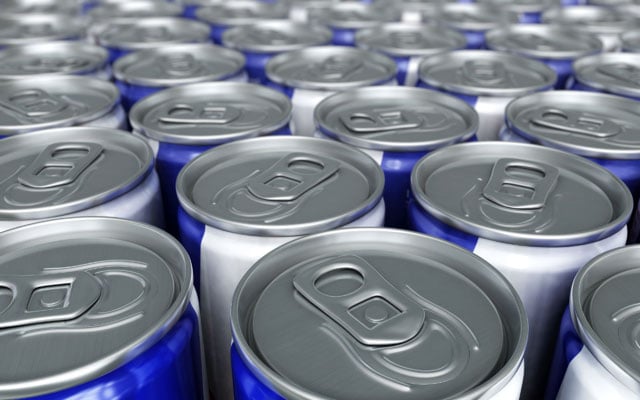
Energy drinks may boost head trauma
A confusion of athletic proportions
Granted that a liquid meal between vigorous workout sessions or adrenaline spiking athletic events is the common sense grub choice, the confusion lies in inability to distinguish between a sports drink and an energy drink. Sports drinks contain 6% to 8% carbohydrate solutions along with a mixture of electrolytes that speeds up absorption within the body. Furthermore, research finds that alternatives such as fresh fruit smoothies, water and coconut water are all excellent alternatives to sports drinks as they are rich in sodium and prevent muscle fatigue and cramp. Energy drinks on the other hand are a super charged cocktail of up to 11% carbohydrates along with caffeine in amounts as high as 294mg in a large bottle, and energy spiking herbs like guarana and ginseng added to accentuate the effect of caffeine and sugar. Because these drinks are not stringently regulated, manufacturers take the liberty of adding even more brain-addling substances namely pyruvate, creatine, taurine, triglycerides, oxygen and even alcohol.
To top it off, these are marketed sans regulation through televised content, usually depicting a young man engaged in aggressive physical activity, with an admiring, attractive female in the frame, communicating the sub text that consuming such drinks will allow men to accomplish herculean feats, thus preying on masculine insecurities of viewers.
A litany of toxicities
Under the hood, ingredients in energy drinks do more than just turning up the ‘feel good’. The consequential impacts are harrowing and in the long run, do more bad than good.
Energy drinks linked to serious head injury in teen
The heart: The godfather ingredient in energy drinks, also known as caffeine, binds with adenosine receptors on the heart cells, increasing contraction and blood pressure. This increases muscle activity and prolongs muscle exertion. Research shows this can lead to irregular heartbeat, chest pains and even cardiac arrest in people who are otherwise fit as a fiddle, with no presentation of arterial block or significant family history, partly due to calcium build-up in heart muscles.
The brain: When these supercharged components stimulate the pituitary gland in the brain, it brings on the ‘fight or flight’ response, which happens when the body senses fear and flushes the system with adrenaline to prepare for the onslaught. Adrenaline, in turn, causes increased energy production from liver by metabolising glycogen reserves and also triggers release of dopamine in the brain that tricks the body into believing that it has more energy to perform such feats. While this may allow you to sail though short term muscle stress and come out unscathed at the end, in the long run it increases insomnia and nervousness, and has also been shown to cause seizures due to increased neural activity and muscle firing.
The double whammy: Because energy drinks allow prolong muscle exertion, they also increase sweat production, which means you will lose more salt and water, making you absolutely parched. Force of habit will cause you to reach again for your energy drink to satiate your thirst, which will start the same vicious cycle again: drink, sweat, repeat. The outcome is that you will continue feeling jittery, anxious and irritable even hours after the ‘magical might’ portion has disappeared.
Energy drinks bad for youngsters’ heart
Behavioural ramifications: The volatile mixture of caffeine, taurine (an amino acid that supports neurological development), sugar and vitamins has been linked to alteration in mood and behaviours of people who consume them unreservedly. Research using a mice model showed that excessive consumption led to exhibition of bizarre behaviours like anxiety and self-mutilation, and is also feared to serve as a gateway to other forms of drug abuse and dependence. ‘Caffeine intoxication’ following excessive consumption has also been the alleged reason behind people losing all forms of inhibition, putting them in homicidal rage.
The bottom line is if you are looking to ward off dull spells, eat well, sleep well and stick to chai for a desi pick-me-up. An occasional black coffee, should you fancy it, is far better than dabbling in stuff you are clueless about.
Batool Kazim is a UK-based pharmacist.


1727778647-0/diddy-(16)1727778647-0-165x106.webp)

1732014631-0/BeFunky-collage-(71)1732014631-0-165x106.webp)


1725446940-0/Untitled-design-(16)1725446940-0-270x192.webp)









COMMENTS (1)
Comments are moderated and generally will be posted if they are on-topic and not abusive.
For more information, please see our Comments FAQ